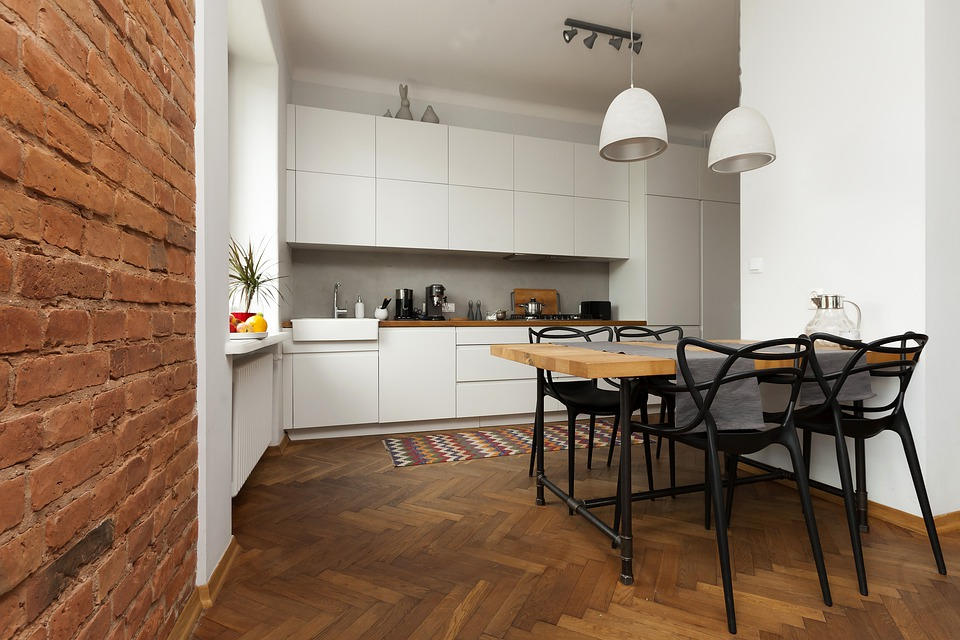As Poslovni Dnevnik/Jadranka Dozan writes, the proverbial earthquakes triggered by the Russian invasion of Ukraine across global markets – primarily through supply chain disruptions, and then the prices of energy, food, various industrial raw materials and goods – aren’t, of course, bypass the wood sector. Croatian wood floor manufacturers are far from immune.
In addition to an already quite complicated business environment, some new complications related to certain sectors are now beginning to arise almost on a daily basis. This is particularly the case in the wood and paper industries, when it comes to fuel chips, plywood logs and the like. A decision was prepared as a counter-sanction aimed at countries on Russia’s hostile list, from the US to the European Union (EU), and is scheduled for the end of the year.
For some European companies, but also Croatian industrial companies and retailers, the related delivery problems are even greater. All of these difficulties only work to further emphasise the long-standing belief that the raw material potential Croatia boasts should be better used.
This means investing in capacities and technology that would result, among other things, in the production of greater added value. It’s worth really highlighting the fact that the Croatian wood sector is one of the few industries where the country actually has all of the proper raw materials for the job.
Over recent days, Bjelin, owned by Darko Pervan and which started building a wooden floor factory in Ogulin last year, announced that the group had decided to increase and improve investments in existing facilities and speed up the completion of a new Croatian factory. The company says this should make a significant contribution to replacing part of the wooden floor production capacity that is now being lost in connection with the Russian war against Ukraine.
However, for most of the companies within the HUP-Association of the Wood and Paper Industry, the problems they’re facing are currently in a stronger focus.
“Economic sanctions imposed by the EU, and thus Croatia in relation to economic relations with the Russian Federation, as well as the announced decision of Russia to ban the export of birch wood products, are causing very serious problems for Croatian wood floor producers,” said Ivica Pasalic, adding that the EU’s decisions should point to very high penalties for violating sanctions in any way, including through third countries.
Russia produces 75 percent of the world’s birch plywood production and their manufacturers have been the dominant suppliers to a number of our two-layer parquet manufacturers. As Pasalic pointed out, practically all of them have had very serious problems when it comes to production and are in danger of being stopped entirely. Finding alternative solutions, on the other hand, is neither quick nor easy.
The Association also intends to try to arrive to a solution through social dialogue with the competent ministry, because, as he said, a large number of workers work in these factories, and they’re threatened with losing their jobs, and companies are shutting down production.
Stjepan Vojinic from the management board of the Bjelin Group pointed out that the situation with the shortage of raw materials and semi-finished products caused by the war in Ukraine is serious for all European producers of various types of wooden floors, but also the wider furniture industry.
The most affected, he said, are those countries that don’t have the primary raw materials at hand (mainly oak) in the flooring industry, where Ukraine, Russia and Belarus participated with approximately 30 percent of those total needs. In addition, the issue of the general dependence of the European furniture industry on HDF and plywood, primarily from Russia, is coming to the fore.
As usual, crises can be seen as opportunities. “Nobody likes to have to develop and grow at the expense of other people’s troubles, but this is a situation that we didn’t want and we couldn’t have had any influence over it in any way, so we shouldn’t be ashamed of that and we should try to use it,” said Vojinic.
The Bjelin Group, he says, is working hard to accelerate its planned investments that will lead to growth in production and implementation of new technologies.
“How successful we’ll be depends only on us, because we have to start our production of new Woodur wood floor coverings, which we now have in Sweden, and we’ll have that here in Croatia as soon as possible, too. The new plan is to have the final finishing by the end of this year, and the complete production by the end of the next year,” announced Vojinic.
It’s worth noting that Bjelin gets all its oak raw materials from Croatia, but Russia and Ukraine are also large exporters of oak and other wood materials for the flooring industry, and have significant parquet production, which is now directly affected by the war and the accompanying sanctions.
According to company estimates, 25 percent of oak planks produced for European markets come from Russia and Ukraine. Due to all of this, it has been calculated that many construction projects are now in danger of significant delays due to the cancellations of deliveries.
This, of course, doesn’ only apply to floor coverings. Other players in the wider wood sector, from wood processors to retailers, are also facing complex supply chain problems owing to the current dire situation between Russia and Ukraine. Some will say that until recently, they “flirted” with foreign partners about prices, and now it’s a much bigger challenge to even try to ensure delivery.
Mladen Jambrovic, the first man of Iverpan, says that quarterly or multi-month detailed planning no longer works, now they are much shorter due to disruptions and the general level of unpredictability of deliveries. Demand, he says, is not falling.
The construction sector is quite active, and after the preparations for the tourist season were delayed last year due to the uncertainty surrounding the coronavirus pandemic, this year they started much earlier, which ultimately affects the demand for wood products related to interiors.
Emphasising the complexity of the overall business conditions, he noted that in the production of plywood, for example, goods today are ordered for delivery in two, three or four months. In addition, it is an energy-intensive activity, with gas being the main energy source.
For wood centres and/or furniture manufacturers, there are also problems related to the situation with some ancillary goods, products and markets, from steel (fittings, hinges) to glue, fillers or cardboard; these are all segments of considerable importance to both Ukraine and Russia. All in all, good demand today is accompanied by many “buts”, and this will continue to have a very strong effect on Croatian wood floor manufacturers.
For more, make sure to check out our dedicated business section.










